- Home
- P. D. James
The Skull Beneath the Skin Page 22
The Skull Beneath the Skin Read online
Page 22
“But why take the risk of calling in Miss Gray?”
“What risk? She could hardly discover that the letters were faked, not in one short weekend. A very short weekend as far as Lisle was concerned. Employing Gray gave the final artistic touch to the whole plan.”
“I still think he’d have been taking a risk.”
“That’s because we’ve seen the girl. She’s intelligent and she knows her job. But Ralston wasn’t to know that. Who was she, after all? The proprietor of a one-woman detective agency, apparently. After Lisle first met her at the house of that friend of hers—Mrs. Fortescue wasn’t it?—she probably suggested to Ralston that they call her in. That’s why she never bothered to interview the girl herself. Why trouble when the whole thing was a ploy?”
“It’s ingenious, sir, but it still begs the question why Lisle should have connived in it all. I mean, what possible reason could Ralston give to persuade her to pretend that her life was threatened?”
“What, indeed, Sergeant? Like Miss Gray, I’m in danger of being too clever for my own good. But one thing I’m sure of. The murderer spent the day under this roof. And I’ve a choice bunch of suspects. Sir George Ralston, baronet, something of a war hero and darling of the geriatric Right. A distinguished theatre critic, one even I have actually heard of. Seriously ill too, by the look of him, which means that he’ll probably die on me under the gentlest interrogation. Interrogation. Odd how one dislikes that word. Too many echoes of the Gestapo and K.G.B., I suppose. A best-selling novelist who not only owns the island but happens to be friendly with the Cottringhams who have the ear of the Lord Lieutenant, the Chief Constable, the M.P. and anyone else who matters in the County. A respectable bookseller ex-schoolteacher who’s probably a member of the civil rights and women’s lib lobbies and who will protest to her M.P. about police harassment if I raise my voice to her. And a school kid—and sensitive with it. I suppose I should be grateful that he’s not a juvenile.”
“And a butler, sir.”
“Thank you for reminding me, Sergeant. We mustn’t forget the butler. I regard the butler as a gratuitous insult on the part of fate. So let’s give the gentry in the library a respite and hear what Munter has to tell us.”
5
Buckley noted with irritation that Munter, invited by Grogan to sit, managed in the mere act of lowering his buttocks on to the chair to suggest both that it was unseemly for him to seat himself in the business room and that Grogan had committed a social solecism in inviting him to do so. He couldn’t remember ever having seen the man in Speymouth; his was certainly not an appearance one was likely to forget. Watching Munter’s strong and lugubrious face on which the unease proper to his present situation was noticeably absent he found himself prepared to disbelieve everything he heard. It seemed to him suspicious that a man should want to make himself more grotesque than nature had intended and if this was Munter’s way of cocking a snook at the world he had better not try it on with the police.
Basically conforming and ambitious, Buckley had no resentment of those wealthier than himself; he had every intention of eventually joining them. But he despised and distrusted those who chose to earn their living by pandering to the rich and suspected that Grogan shared this prejudice. He watched them both with a wary and critical eye and wished that he was taking a more active part in the interrogation. Never had his chief’s insistence that he sit silent unless invited to speak, watch carefully and take unobtrusive shorthand notes seemed more restrictive and demeaning. Morbidly sensitive to any nuance of condescension he felt that the glance Munter casually gave him conveyed a slight surprise that he should have been allowed into the house.
Grogan, seated at the desk, leaned back in his chair so strongly that its back creaked, twirled round to face Munter and splayed his legs wide as if to assert his right to feel perfectly at home. He said: “Suppose you begin by telling us who you are, where you came from and what precisely is your job here.”
“My duties, sir, have never been precisely defined. This is not altogether an orthodox household. But I am in charge of all the domestic arrangements and supervise the two other members of staff, my wife and Oldfield, who is the gardener, handyman and boatman. Any additional help necessary when Mr. Gorringe is entertaining or has house guests is obtained on a temporary basis from the mainland. I look after the silver and the wine and wait at table. The cooking is generally shared. My wife is the pastry cook and Mr. Ambrose himself occasionally cooks a meal. He is fond of preparing savouries.”
“Very tasty, I’m sure. And how long have you been part of this unorthodox household?”
“My wife and I came into Mr. Gorringe’s service in July 1978 three months after his return from a year abroad. He had inherited the castle from his uncle in 1977. Perhaps you would wish for a brief curriculum vitae. I was born in London in 1940 and educated at Pimlico Primary and Secondary Schools. I then took a course in hotel catering and for seven years worked in hotels here and abroad. But I decided that institutional life was unsuited to my temperament and entered private services firstly with an American business gentleman living in London and then, when he returned home, here in Dorset with his lordship at Bossington House. I am sure my previous gentlemen will speak for me if necessary.”
“No doubt. If I were looking for a manservant you’d do very nicely. But I’ll be consulting a more objective character reference source, the Criminal Records Office. Does that worry you?”
“It offends me, sir. It doesn’t worry me.”
Buckley wondered when Grogan would stop this needling and get down to the main inquiry, what Munter had been doing between the ending of lunch and the finding of the body. If these preliminaries were meant to provoke the witness they weren’t succeeding. But Grogan knew his business, at least the Met had appeared to think so. He had come to Dorset burdened with something of a reputation. Now he stopped looking at Munter; his voice became conversational: “This play. It was to be a regular event, was it? An annual drama festival perhaps?”
“I have no means of knowing. Mr. Gorringe did not confide his plans to me.”
“Once was enough, I should think. It must have made a lot of extra work for you and your wife.”
Munter’s slow and disapproving glance round the business room was an inventory of unwelcome change; the slight rearrangement of the furniture, Buckley’s jacket slung over the back of his chair, the coffee tray with the two stained cups, its surface crumbed with half-eaten biscuits. He said: “The domestic inconvenience occasioned by Lady Ralston living was nugatory compared with the inconvenience of Lady Ralston murdered.”
Grogan held his pen in front of his face and peered at its tip, moving it backwards and forwards as if testing his eyesight.
“You found her a pleasant, likeable guest, easy to get on with?”
“That was not a question to which I addressed myself.”
“Address yourself to it now.”
“Lady Ralston seemed a very agreeable lady.”
“No trouble? No disagreements? No rows as far as you knew?”
“None, sir. A great loss to the English stage.” He paused and added woodenly: “And, of course, to Sir George Ralston.”
It was impossible to judge whether the statement was ironic, but Buckley wondered whether Grogan, too, had caught the clear bite of contempt. Grogan rocked back in his chair, legs stretched, and stared consideringly at his witness. Munter gazed ahead with a look of patient resignation and, after a minute of silence, permitted himself a glance at his watch.
“Right! Let’s get on with it. You know what we want, a full account of where you were, what you were doing and who you saw between one o’clock when lunch was over and two-forty-three when Miss Gray found the body.”
According to Munter’s account, he had spent the whole of that time on the ground floor of the castle chiefly moving between the dining room, his pantry and the theatre. As he had been continually busy with preparations for the play and the supper party, it w
asn’t always possible to say where he had been or with whom at any particular moment in time, although he doubted whether he had ever been alone for more than a few minutes. He said in a voice which held no trace of regret, that he very much regretted not being able to be more precise, but he could not, of course, have known so detailed an account would subsequently be required. At first he had helped his wife clear away the luncheon and had then gone to check on the wine. There had then been three telephone calls to answer, one from a guest who was prevented by illness from attending the performance, a second inquiring about the time the launch would leave Speymouth, a call from Lady Cottringham’s housekeeper to know whether they needed any extra glasses. He had been checking on the men’s dressing room when his wife had appeared backstage to ask him to look at one of the tea urns which she thought might not be working. It was unfortunate that they had to hire urns; Mr. Gorringe had a strong dislike of them and complained that they made the great hall look like a meeting of the Women’s Institute, but with an audience of eighty people and the cast to provide for, the use of the urns had been necessary.
At some time, he couldn’t remember precisely when, he had remembered that Mr. Gorringe had asked him to find a second music box for use in the Third Act of the play, Miss Lisle having expressed dissatisfaction with the one provided at the dress rehearsal. He had come here into the business room to fetch it from the walnut chiffonier. At this stage his eyes indicated what Buckley sourly thought could very well have been described as a cupboard. His Aunt Sadie had one like it, not as fancily carved on the doors or at the end of the shelves, but pretty much the same. She claimed it had been in the family for generations, kept it in the back parlour, and called it a dresser. She used it for the bits and pieces her kids brought back from holiday for her, cheap souvenirs from the Costa del Sol, Malta and, now, from Miami. He’d have to tell her that what she’d got was a chiffonier and she’d reply that he made it sound like a bloody ice cream.
He turned the page of his notebook. Munter’s resigned voice droned on. He had taken the second music box and placed it with the first one on the props table. Shortly afterwards, it could have been as late as two-fifteen, Mr. Gorringe had appeared and they had checked over the props together. By then it was time to go to the quay to meet the launch bringing the rest of the cast from Speymouth. He had gone with Mr. Gorringe to receive them and had helped with the disembarkation. Mr. Gorringe and he had escorted the gentlemen to their dressing rooms and his wife and Miss Tolgarth had looked after the ladies. He had stayed backstage for about ten minutes and had then gone to his pantry where Mrs. Chambers and her granddaughter were polishing glasses. He had had occasion to complain to the girl, Debbie, about a smeared glass and had supervised the arrangements to re-wash them all. After that he had gone to the dining room to collect the chairs together for the supper party, which was to be held in the great hall. He had been there when Mr. Gorringe had put his head in to inform him of Miss Lisle’s murder.
Grogan sat with his great head lowered, as if bowed with the weight of assimilating this succinct account. Then he said quietly: “You are, of course, devoted to Mr. Gorringe.”
“Yes indeed, sir. When Mr. Gorringe broke the news to me I said: What, in our house?”
“Quite Shakespearean. The Macbeth touch. And no doubt Mr. Gorringe could riposte with: ‘Too awful anywhere’?”
“No doubt he could have, sir. Actually what he said was that I should go to the landing stage and prevent the guests from landing. He would follow as soon as possible and explain the lamentable circumstance which necessitated the cancellation of the performance.”
“The launches were then at the quay?”
“Not at that time. I judged that they were three-quarters of a mile away.”
“So there was no particular hurry to warn them?”
“It was not a matter to be left to chance. Mr. Gorringe was anxious that the police investigation should not be hampered by the presence on the island of another eighty people in a state of confusion or distress.”
Grogan said: “In a state of highly enjoyable excitement, more likely. Nothing like a good murder for a thrill. Or wouldn’t you know?”
“I wouldn’t know, sir.”
“Still, it was considerate of your master—I suppose that’s what you call him—to have as his first thought the convenience of the police. Highly commendable. What was he doing, do you know, while you were wasting a certain amount of time at the quay?”
“I suppose that he was telephoning the police and acquainting his guests and the cast of the play with the fact of Lady Ralston’s death. I have no doubt he will inform you if asked.”
“And how exactly did he acquaint you with the fact of Lady Ralston’s death?”
“He told me that she had been battered to death. He instructed me to inform the guests when they arrived that she had been killed by a blow to the head. There was no need to harrow them unnecessarily. In the event I was not required to tell them anything as Mr. Gorringe had joined me by the time the launches arrived.”
“A blow to the head. You have seen the body?”
“No, sir. Mr. Gorringe locked the door of Lady Ralston’s room after the discovery. There was no occasion for any of the staff to see the body.”
“But you have, no doubt, formed some opinion as to how this blow to the head was inflicted. You permitted yourself a theory, a little natural curiosity? You went so far, perhaps, as to discuss it with your wife?”
“It did occur to me to wonder whether the assault was connected with the missing marble hand. Mr. Gorringe will have told you that the display case was forced in the early hours of this morning.”
“So suppose you tell us what you know about that.”
“The object was brought back to the castle by Mr. Gorringe on his return from London on Thursday night and placed by him in the showcase. The showcase is kept locked since groups of visitors are shown round the castle during the summer months on days which are announced in advance and Mr. Gorringe’s insurance company has insisted on this degree of security. Mr. Gorringe himself placed the hand in position, watched by me, and we had some conversation on its possible provenance. He then locked the showcase. The keys to the display cabinets are not, of course, kept on the key board with the house keys but in the bottom left locked drawer of the desk at which you are now sitting. The showcase was undamaged and the marble arm in place when I saw it shortly after midnight. Mr. Gorringe found it in its present state when he was on his way to the kitchen just before seven o’clock. He is an early riser and prefers to make his own morning tea and carry the tray either on to the terrace or into the library depending on the state of the weather. We inspected the damage together.”
“You saw no one, heard nothing?”
“No, sir. I was busy in the kitchen preparing the early-morning tea trays.”
“And they were all there when you took up the early tea trays?”
“The gentlemen were. I understand from my wife that the ladies were also in bed. Lady Ralston’s early tea was taken up later by her maid, Miss Tolgarth. At about seven-thirty Mr. Gorringe came to tell me that Sir George had arrived unexpectedly, put ashore in the small bay west of the headland by a local fishing boat. I did not myself see him until I set breakfast on the hotplate in the small breakfast room at eight o’clock.”
“But anyone could have got into the house at any time after six-o’five when you opened up the castle?”
“The back door leading to the great hall was unlocked by me at six-fifteen. At the time I looked out over the lawn and the path leading to the beach and the coastal walk. I saw no one. But anyone could have entered and done the damage between six-fifteen and seven o’clock.”
The rest of the interview was unfruitful. Munter appeared to repent of his loquacity and his answers became shorter. He had no idea that Lady Ralston was receiving poison-pen communications and had no suggestions to offer as to their origin. Shown one of the messages he fingered the pap
er with fastidious distaste and said that it was the kind he and his wife commonly bought but in cream not white. The castle writing paper had an engraved address and was of a different quality as the Chief Inspector would be able to check by opening the top left-hand drawer of the desk. He had not known that Mr. Gorringe had given Lady Ralston one of his Victorian jewel caskets nor had he been told that it was missing. He could, however, describe the casket in question since there were only two in the castle. It had been made by a silversmith of Hunt and Rosken in 1850 and was thought to have been among their pieces shown at the Great Exhibition of 1851. It had been considered for use as a prop in the Third Act of the play but the larger and less valuable if more showy casket had been thought the better choice.
Grogan frowned, irritated by this display of irrelevant knowledge. He said: “There’s been murder done here, bloody murder of a defenceless woman. If there’s anything you know, anything you suspect, anything that later occurs to you bearing on this crime I expect to be told it. The police are here, and we’re here to stay. We may not always be physically present but we’ll be around, we’ll be concerned with this island, concerned with what happens here, and that means concerned with you, until the murderer is brought to justice. Have I made myself clear?”
Munter got to his feet. His face was still impassive. He said: “Perfectly, sir. May I say that Courcy Island is used to murder. And the murderers commonly haven’t been brought to justice. Perhaps you and your colleagues will have better luck.”
After he had left, there was a long silence which Buckley knew better than to interrupt. Then Grogan said: “He thinks the husband did it, or he wants us to think that the husband did it. No marks for originality. It’s what we’re bound to think anyway. D’you know the Wallace case?”
“No, sir.” Buckley told himself that, if he were to continue working with Grogan, it would be as well to get hold of a copy of The Murderers’ Who’s Who.
“Liverpool, January 1931. Wallace, William Herbert. Inoffensive little insurance agent trotting round door to door and collecting the odd bob weekly from poor sods terrified they wouldn’t be able to pay for their own funerals. Taste for chess and the violin. Married a bit above himself. He and his wife Julia lived in genteel poverty, which is the worst poverty of the lot, in case you didn’t know, and kept themselves to themselves. Then on nineteenth January, when he’s out looking for the address of a prospective customer who may or may not exist, Julia gets her head savagely bashed in in her own front sitting-room. Wallace stood trial for the murder and a sturdy Liverpool jury, who probably weren’t entirely unbiased, convicted. The Court of Criminal Appeal subsequently made legal history by quashing the verdict on the grounds that it was unsafe having regard to the evidence. So they let him go and he died of kidney disease two years later, a bloody sight more slowly and painfully than he would have done at the end of a rope. It’s a fascinating case. Every piece of evidence can point either way, depending on how you choose to look at it. I can lie awake at night thinking about it. It ought to be compulsory study for every detective constable, a warning of how a case can go wrong if the police get it fixed in their minds that it has to be the husband.”

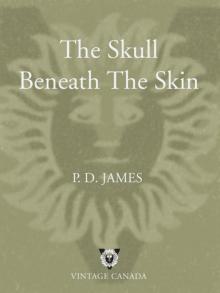 The Skull Beneath the Skin
The Skull Beneath the Skin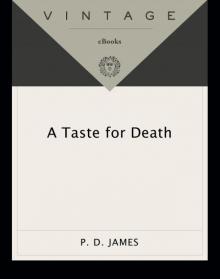 A Taste for Death
A Taste for Death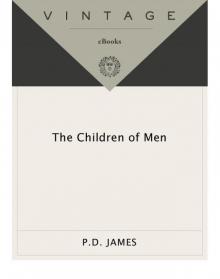 The Children of Men
The Children of Men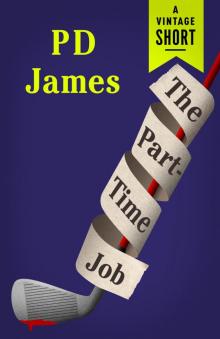 The Part-Time Job
The Part-Time Job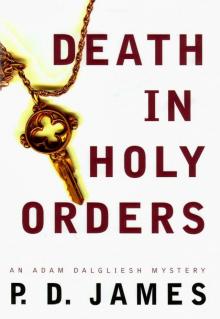 Death in Holy Orders
Death in Holy Orders The Victim
The Victim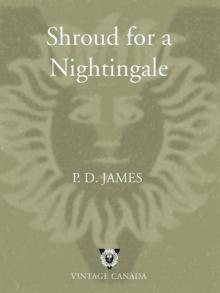 Shroud for a Nightingale
Shroud for a Nightingale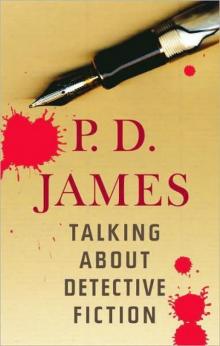 Talking about Detective Fiction
Talking about Detective Fiction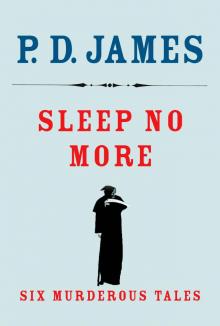 Sleep No More
Sleep No More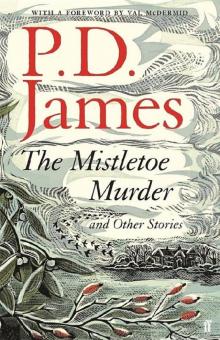 The Mistletoe Murder and Other Stories
The Mistletoe Murder and Other Stories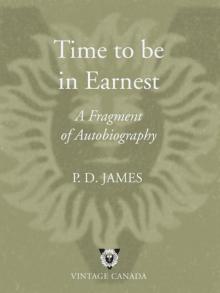 Time to Be in Earnest
Time to Be in Earnest Original Sin
Original Sin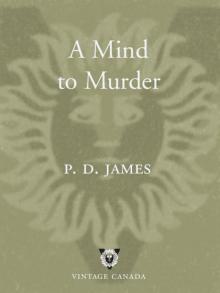 A Mind to Murder
A Mind to Murder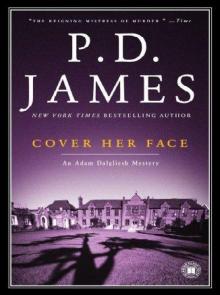 Cover Her Face
Cover Her Face Innocent Blood
Innocent Blood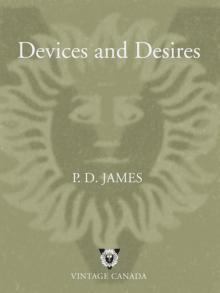 Devices and Desires
Devices and Desires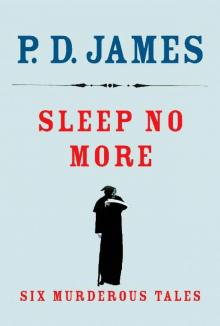 Sleep No More: Six Murderous Tales
Sleep No More: Six Murderous Tales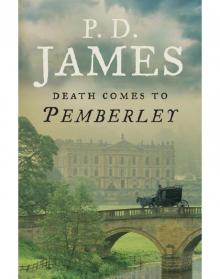 Death Comes to Pemberley
Death Comes to Pemberley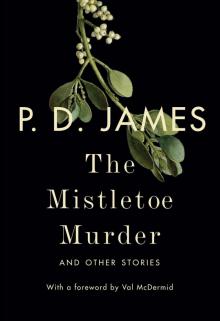 The Mistletoe Murder
The Mistletoe Murder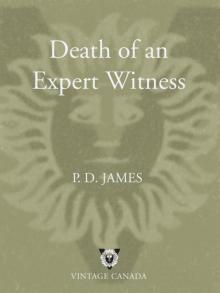 Death of an Expert Witness
Death of an Expert Witness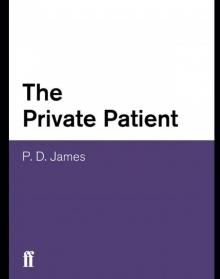 The Private Patient
The Private Patient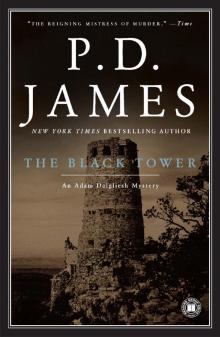 The Black Tower
The Black Tower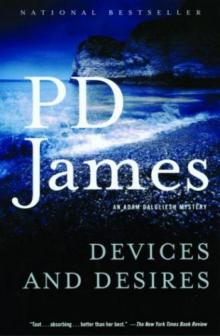 Devices & Desires - Dalgleish 08
Devices & Desires - Dalgleish 08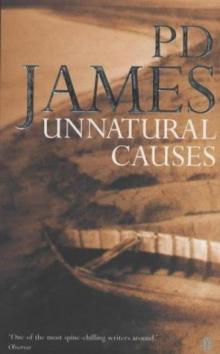 Unnatural Causes
Unnatural Causes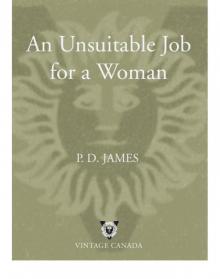 An Unsuitable Job for a Woman
An Unsuitable Job for a Woman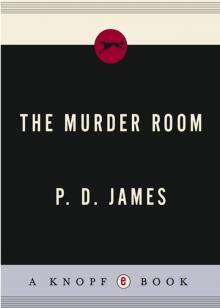 The Murder Room
The Murder Room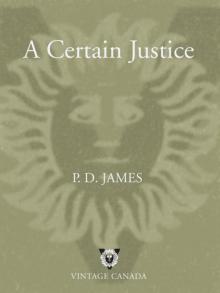 A Certain Justice
A Certain Justice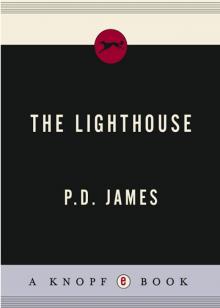 The Lighthouse
The Lighthouse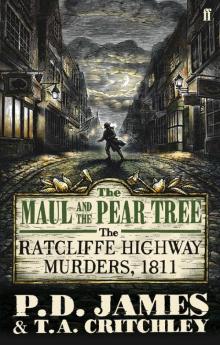 The Maul and the Pear Tree
The Maul and the Pear Tree